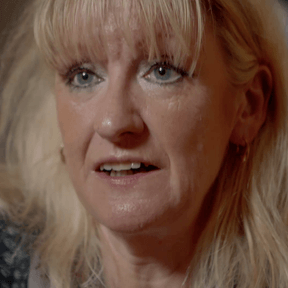Nicky Clayton facts for kids
Quick facts for kids
Nicky Clayton
FRS FSB
|
|
|---|---|
 |
|
| Born | 22 November 1962 |
| Citizenship | United Kingdom |
| Alma mater | University of Oxford University of St Andrews |
| Scientific career | |
| Fields | Comparative cognition |
| Institutions | University of Cambridge Rambert Dance Company |
| Thesis | (1987) |
Professor Nicola Susan Clayton (born 22 November 1962) is a British psychologist. She is a top expert in how animals think and learn. Professor Clayton teaches at the University of Cambridge. She is also a scientist who works with the Rambert Dance Company. She helped start 'The Captured Thought', a group that explores how we think. Since 2010, she has been a special member of the Royal Society.
Contents
Early Life and Education
Nicky Clayton studied zoology at the University of Oxford. She earned her first degree in 1984. Later, she received her PhD from the University of St Andrews in 1987.
Amazing Career Discoveries
Understanding Animal Minds
Professor Clayton has made big discoveries about how animals think. She also studies how children's minds grow. Her work helps us understand how memory works in the brain. She combines biology and psychology to study intelligence. This helps us learn about how animals and young children develop their thinking skills.
Professor Clayton studies not only humans but also birds. She focuses on the crow family, like jackdaws, rooks, and jays. Her research shows that these birds can remember the past. They can also plan for the future. This challenges the old idea that only humans could do these things. Her work has changed how we see animal intelligence. It suggests that intelligence grew separately in different groups. This includes apes, crows, and even cephalopods like cuttlefish. Her findings have even influenced laws about animal welfare.
Science and Dance: A Unique Partnership
Since 2009, Professor Clayton has worked with the Rambert Dance Company. She started as a science helper and is now their scientist-in-residence. She is also a dancer herself, specializing in tango and salsa. She uses ideas from both science and art in her dance projects.
In 2009, she worked on a dance piece called The Comedy of Change. This dance was inspired by Charles Darwin's ideas about how living things change over time. She worked with Mark Baldwin, the dance company's director. She shared scientific ideas to help create the dance. She has worked with Mark Baldwin on many other dances. These include Seven For a Secret, Never To Be Told and The Strange Charm of Mother Nature.
The dance Seven For a Secret, Never To Be Told was about how children's minds work. This is another area Professor Clayton studies. She focused on how children behave as they grow. She highlighted the importance of play. These ideas helped inspire the dance. The title came from the nursery rhyme One for Sorrow. This rhyme is about magpies and old beliefs about the future.
The Captured Thought: Art Meets Science
Professor Clayton also works with artist and author Clive Wilkins. He has been an artist at the University of Cambridge since 2012. They both love thinking about "mental time travel". This means thinking about the past and planning for the future. Together, they started "The Captured Thought". This is a project where art and science come together.
They give talks and explore how we experience thinking. They use ideas from both science and art. They look at how we see things and how we think about time. Their goal is to understand memories better. They also question how we use analysis to think. Their work has been featured in major newspapers and magazines. They have given lectures at universities around the world. Their work was also in a special issue of the New Scientist magazine in 2022.
Important Published Works
Professor Clayton has written many important scientific papers. Here are some of them:
- 1998: Episodic-like memory during cache recovery by scrub jays
- 2001: Effects of experience and social context on prospective caching strategies in scrub jays
- 2004: The mentality of crows. Convergent evolution of intelligence in corvids and apes
- 2006: Food-caching western scrubjays keep track of who was watching when
- 2007: Planning for the future by Western Scrub-Jays
- 2009: Western scrub-jays conceal auditory information when competitors can hear but cannot see
- 2009: Episodic future thinking in 3- to 5- year-old-children: The ability to think of what will be needed from a different point of view
- 2012: Eurasian jays (Garrulus glandarius) overcome their current desires to anticipate two distinct future needs and plan for them appropriately
- 2013: Careful cachers and prying pilferers: Eurasian jays (Garrulus glandarius) limit auditory information available to competitors
- 2014: The Evolution of Self Control
- 2015: Thinking ahead about where something is needed: New insights about episodic foresight in preschoolers
- 2019: Mind Tricks. Magic and mysticism reveal cognitive shortcuts with implications beyond entertainment
- 2021: Exploring the perceptual inabilities of Eurasian jays (Garrulus glandarius) using magic effects. PNAS
- 2021: Jays are sensitive to cognitive illusions. Royal Society Open Science
- 2022: Could it be Protomagic? Deceptive tactics in non-human animals resemble magician’s misdirection. Psychology of Consciousness: Theory, Research and Practice
- 2023: Monkey Magic. Current Biology
- 2024: Beyond the Tricks: The Science and Comparative Cognition of Magic. Annual Review of Psychology
Awards and Honors
Professor Clayton has received many awards for her work:
- 1999: American Psychological Association's Frank Beach Award
- 2003: Klaus Immelmann Award in Animal Behavior
- 2010: Elected Fellow of the Royal Society
- 2012: Experimental Psychology Society Mid-Career Award
- 2013: Fellow of the American Ornithological Society
- 2019: President of the British Science Association Psychology Section
- 2022: Association for the Study of Animal Behaviour (ASAB) Medal
 | Tommie Smith |
 | Simone Manuel |
 | Shani Davis |
 | Simone Biles |
 | Alice Coachman |

